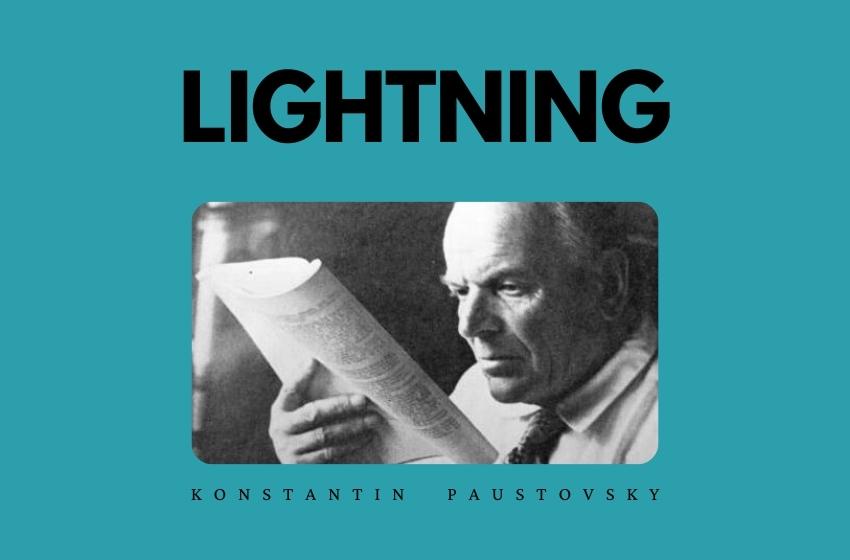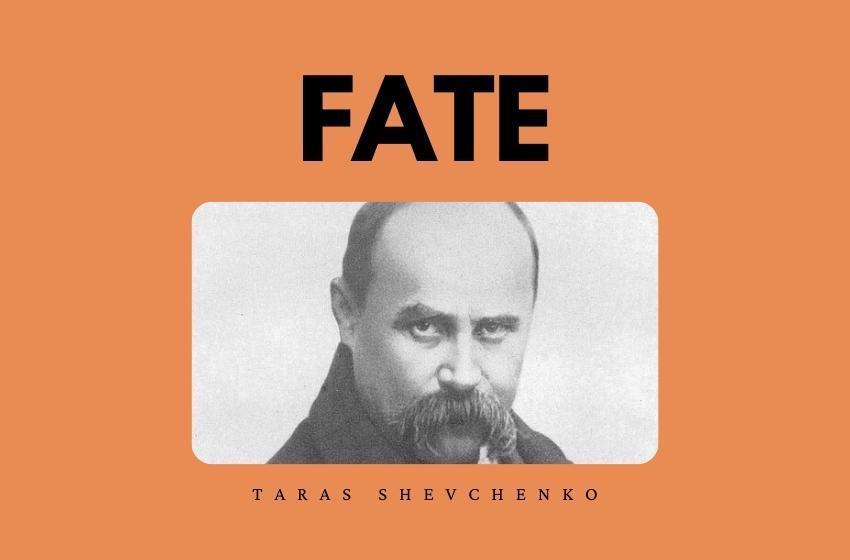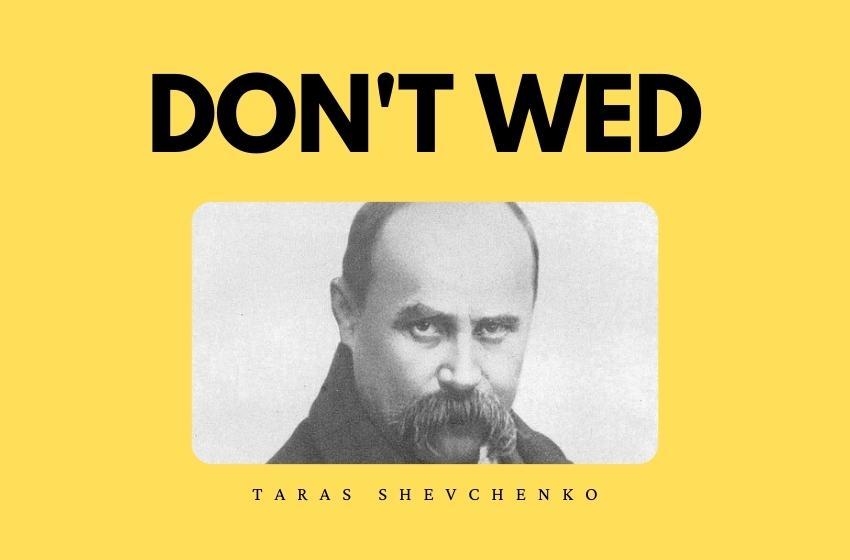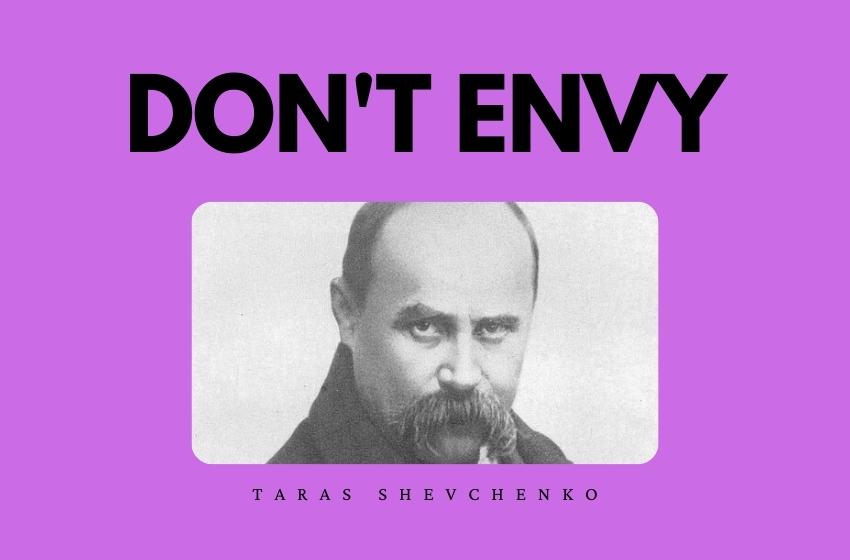Konstantin Paustovsky was born in Moscow, he spent his childhood and youth in Kyev, was living in Odessa and working in the newspaper «Moryak» ("Sailor"). The Public Museum was started by Literature Association «The world of Paustovsky» in 1998, on the street Chernomorskaya, where Paustovsky was living in 1919-1922.
How does the writer get an idea for his book or story? Since there are hardly two ideas which arise and develop in the writer's mind in the same way, the answer to this question will be different in each case.
It is easier to answer the question: what precedes the birth of an idea for a literary work? The answer is — the writer's mental state.
Perhaps I can best explain what I mean by drawing a comparison. Comparisons to my mind often help to shed light on a complicated problem. The astronomer James Jeans, for example, when asked what he thought was the age of the earth, replied: "Imagine," he said, "a gigantic mountain, say Mt. Elbrus in the Caucasus, and think of a little sparrow pecking away light-heartedly at it. Well then, the earth has been in existence as many years as it would take that sparrow to peck the mountain to its very base."
I'll draw a much simpler comparison to show how an idea is conceived in the writer's mind. Let us compare the idea itself to a flash of lightning. It takes many days for electricity to accumulate over the earth. But when a very great amount of it has accumulated, the atmosphere becomes so overcharged with it that the white cumuli are turned into dark thunder-clouds and the electric charges burst into a spark. Thus lightning appears. And it is almost immediately followed by torrents of rain.
In very much the same way an idea for a story or novel flashes across the writer's consciousness when it is brimming over with thoughts, emotions and memories, accumulated gradually, little by little, until they have reached a point of saturation and demand an outlet. And it is in an idea for a new story or novel that this crammed and somewhat chaotic world of thought and emotion finds an outlet.
It often needs but some slight stimulus for the idea to arise. It may be a chance meeting with somebody, a word, casual, but full of meaning, a dream, the sound of a far-off voice, the sunlight playing in a drop of water, a steamer's whistle. Anything in the world around us and in our own selves can be that stimulus.
Lev Tolstoi saw a broken burdock and it gave him the idea for his splendid story Khadzhi-Murat, the idea coming like a flash of lightning. On the other hand if Tolstoi had not lived in the Caucasus and had not heard there about Khadzhi-Murat, the burdock, of course, would not have started the train of thought that gave him the idea for the story. Tolstoi's inner consciousness was prepared for the subject and the burdock was merely instrumental in igniting it.
The idea when it first occurs to the writer is often very vague.
"Dimly as yet I discerned the illusive outlines of my novel in the magic crystal of my mind†Pushkin wrote.
Gradually it takes shape, possesses the brain and heart of the writer who turns it over and over in his mind.
The process of thought crystallization and enrichment goes on every hour and every day of the writer's life. It goes on in the most natural way, affected by the writer's daily experiences, his sorrows and joys, and in the closest contact with reality. For the writer must never stand aloof from life, never shrink into himself. Nothing will help the development of his idea better than contact with life.
There are many wrong and trite notions current about literary creation, particularly about inspiration—so trite as to be quite repugnant. There is, for example, The Poet and the Tsar, a film about Pushkin which many still remember. Pushkin is shown sitting with raised eyes, then convulsively seizing his quill-pen, he begins to write, stops, rolls his eyes upwards, chews at his pen, and hurriedly jots down some lines. These actions were evidently copied from the many paintings in which the Russian poet is depicted as an ecstatic madman.
And when inspiration visits a composer (and it must do no other thing but "visit" him), he must stand, it seems, with uplifted gaze conducting for himself the entrancing music that doubtlessly at the moment rings in his soul. This is how Chaikovsky is depicted on the sugar-sweet monument of him in Moscow.
If inspiration is to be defined at all, it is to be defined as a working condition that has nothing to do with a theatrical pose.
Pushkin in his accurate and simple way spoke thus of inspiration: "Inspiration is the vigorous receptivity of the soul, its quick grasp of things paving the way for their explanation. Critics," he said further, "confuse inspiration with exultation." In the same way readers sometimes confuse verisimilitude with truth.
That is not so terrible. But when there are painters and sculptors who confound inspiration with some foolish ecstasy it is a sign of utter ignorance and inconsideration of the hard toil of the writer.
According to Chaikovsky, inspiration is no flourish of the baton but a state when one works to the uttermost, with heart and soul. I beg to be excused for this digression. But all that I have said above is not unimportant for it shows that the Philistine is still among us.
Everyone has at least a few times in his life experienced a state of inspiration—an elevation of the soul, a fresh perception of reality, a flood of thoughts and a consciousness of one's creative powers.
Inspiration is a working condition with a romantic undertone, a between-the-lines poetic commentary.
Inspiration comes to us like a sunny summer morning which had cast off the mists of a quiet night. It breathes tenderly into our face a cool, restorative breath.
Inspiration is like first love when the heart beats loudly in anticipation of joyful meetings, of loving looks and smiles and words unsaid. Delicately and unerringly our mental state is tuned like some magic musical instrument and it echoes even the most deeply hidden sounds of life.
Many writers and poets have said beautiful things about inspiration. "Let but the divine word touch our tender ear," wrote Pushkin. "The sound approaches and hearkening to it my soul grows young," said Blok. To Lermontov, inspiration was "an assuaging of the soul." The poet Fet is extremely accurate in defining inspiration:
With but one turn to steer the vessel's helm
Away from shores where tides have smoothed the sands,
To ride upon the wave Into another realm,
To scent the breezes from the flowering lands.
With but one word to rend the calm despondent,
Be overwhelmed with something dear, unknown,
To be released, pour balm on secret torments,
To feel another's instantly your own…
Turgenev called inspiration the "approach of God," a luminescence of thought and emotion. And he shuddered when he spoke of the torments which the writer goes through to put these thoughts and emotions into words.
Tolstoi's definition of inspiration was very simple. "Inspiration," he said, "is that which suddenly reveals what one is capable of accomplishing. The stronger the inspiration, the greater pains must be taken to bring it to fulfilment."
But whatever we may say about inspiration it is never sterile, it feeds the urge to create. It bears fruit.
1955
Translated from the Russian
by Susanna Rosenberg





















